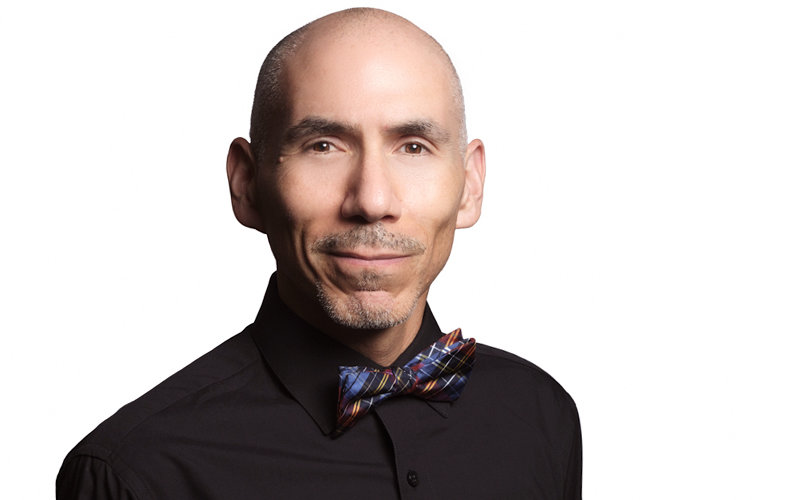
Students in Julio Bermejo’s Comm 361 course “Principles of Public Relations” do more than craft strong communications campaigns. They dissect them.
Bermejo’s students are writing case studies on Colin Kaepernick’s protest against police brutality; Honey Maid’s “This is Wholesome” campaign, which expands the concept of family beyond the traditional nuclear family; and the young Latina feminist movement by the Ovarian Psycos in East Los Angeles.
Effective communication requires listening “authentically” to all sides of an issue, says the assistant professor of communications who joined the Titan faculty this fall, bringing his experience and research in military public affairs and social movements. Students gain important workforce skills by examining such social campaigns, he adds.
Bermejo earned a master’s degree in public relations from the University of Stirling in Scotland and is working to complete his doctorate in communications from the University of Maryland in May.
What inspired you to go into public relations?
There wasn’t much of a plan to it. I had joined the Air National Guard while I was an undergraduate English major at Stanford University. At lunch during one of our drill weekends, an acquaintance mentioned that she would be going to military public affairs school in the Washington, D.C., area. It sounded like an interesting school and career. A few years later, I was a public affairs practitioner and at the start of a very satisfying public relations career.
What areas of continued scholarship and research interest you?
I’m especially interested in two areas: military public affairs and social movements. My experiences as a military public affairs officer, including a deployment to Iraq in 2004, have really fueled my research in recent years. Also, I’ve long been fascinated by the people, groups and efforts that move society forward. I’m excited to be back home in Southern California, where I can research public relations in the context of social change efforts in my own backyard.
What do you hope students get from your instruction and expertise?
I hope my students come away from my classes understanding that effective communication begins with an authentic interest in those individuals or groups we communicate with. It’s hard to communicate effectively if you’re not listening to the other person and you’re unwilling to understand issues from their perspective. Real communication is a two-way process.
What parallels do you see between public relations and activism?
Often the best public relations efforts — the most authentic, the most powerful, the most persuasive — arise from a passionate investment in a particular matter. As historians of public relations have noted, people involved in causes such as abolition, suffrage and temperance in the 19th century were central to the development of what we would later call public relations. Today, we see organizations of all sorts striving to meet an expectation of social responsibility.